HOME

THE ROOT OF ALL RELIGION
by ALVIN BOYD KUHN, Ph. D.

The Mighty Symbol of the Horizon, Nature as Symbol, The Tree of Knowledge, The Rebellion of the Angels, The Ark and the Deluge, The True Meaning of Genesis, The Law of the Two Truths, At Sixes and Sevens, Adam Old and New, The Real and the Actual, Immortality: Yes But How?,
The Mummy Speaks at Last, Symbolism of the Four Elements, Through Science to Religion, Creation in Six Days?, Rudolph Steiner's "Mystery of Golgotha", Krishnamurti and Theosophy, A. B. Kuhn's graduation address at Chambersburg Academy "The Lyre of Orpheus", A. B. Kuhn's unpublished autobiography, Great Pan Returns.
"According to body it is an animal, but according to intellect, a god."Plato "Suffer me to be food to the wild beasts; for I am the wheat of God; and I shall be ground by the teeth of the wild beasts, that I may be found the pure bread of Christ."
The Epistle of Ignatius to the Romans. "His mind was made like the mind of an animal and his dwelling was with the beasts."--Daniel V, 21.
THE ROOT OF ALL RELIGION

No age since the third century of the Christian era stood in more imperative need of a clarification of the nature and meaning of that element in human life called religion than does the present epoch. It appears even now that nothing but such a clarification can save it as an institutionalized expression from hurrying disaster.
From the intimations of events now occurring it would seem as if the radical economic parties would sweep the world into a socialized governmental enterprise, and everybody knows th at the temper of this movement is bitterly, vengefully hostile to religion.
Its spirit has been envenomed against religion because Marx, in a moment of "class-conscious" theorizing, taking sheer plausibility for a "scientific" deduction of logic, put out a short, sharp sentence that stung the minds of his following into unrelenting enmity to religion. Said he, "Religion is the opiate of the masses."
Religion, he asserted, has been utilized by the possessing class as a subtle psychological device to facilitate immensely the troublesome task of keeping the proletariat in docile mood, submissive and content under a hard economic lot.
The preachment that heaven would compensate for the hardships of earth made police and militia considerably less necessary. Religion was a most useful adjunct to capitalistic control. And all too certainly religion has been exploited in a way to give substance to the specious figment of this charge.
The sponsors of religion have themselves largely to blame if a crude embitterment ha s taken root in the mind of the masses. For this particularly vicious by-product of the economic struggle might have been avoided if all parties concerned had known the true place of religion in this mortal life of ours. It is likely a truism that humans seeking an end will turn to advantage any influence or instrumentality that comes to hand in exigency.
But this is not for a moment to lend itself to one or another motive. As to ethical character, things are neutral; they become good or bad as employed by good or bad mortals, or for beneficent or injurious purposes.
The populace is all-advised, on sheer logical grounds, to crucify religion because, forsooth, the rich have slyly turned it to the easing of their social mastery. It is legitimate to condemn the motive and the tactic; but it is not for a moment consistent with the boasted "scientific" rationale of the radical program to exterminate religion either in ignorance or contempt of its true functional value.
Wherever the left-wing parties have won control, they have persecuted religion and taught atheism in the schools. This is fatuous; it is madness. Radical revolutions always go too far; they destroy valuable things to get rid of the dirt that may have collected upon them!
Religion is established largely to conserve important values; and radicalism is against what is conservative. But a right conservatism is as necessary as a right radicalism, if only to conserve what radicalism wins! Stabilization is always necessary, yet one that is plastic to new adjustments.
A golden mean must ever come out of the clash of arrant radicalism with decadent conservatism, both of which extremes are equally stubborn and equally wrong. Every settlement must be a compromise.
Yet it seems to even a superficial view that nothing could be more absurd and more ominous than the radical presupposition that religion can be destroyed by a fiat of government. Had there been a clear understanding of what religion basically is, such an overweening presumption could never have taken form to betray otherwise well-meaning zealots.
Trimmed of all abstruse verbiage the fundamental definition of religion is just man's psychological reaction to the universe of life, in which he finds himself. By psychological is meant intellectual and emotional, sensual and spiritual, the experiences of the psyche or conscious faculty in man.
The whole reaction of man, the psychic being, to life is his religion. Intellectually, what a man thinks of life is his philosophy; but when the philosophic content of his thought works over into his emotional realm and becomes suffused with the emotions of loyalty, sacrifice, devotion and high allegiance, it is then his religion.
Etymologically it is that influence which "bi nds" him "back" (Latin, re, back, and ligo, to bind.) to that which is most deeply fundamental in him, his deific self; a power or disposition which, amidst the events of a world that is ever changing, links him to an order of permanent and essential being that is the abiding heart of the universe.
It is well that this etymological sense of the word be clarified, for there have been definitions that have widely missed the mark of true meaning. One current rendering has it, a "binding back" to the purely conservative, a tying to traditionalism. After all, religion is what its age-long theological interpretation has represented it to be--man's spiritual relation to God, that is, to the power that links him to the orders of life.
But theology has rendered this true definition practically impotent, has falsified and distorted the reference, and eventually the meaning, by localizing the God in the case in the cosmic heavens instead of in man himself.
This diversion of thought and aspiration from operable deity within to ineffable, incomprehensible and inaccessible deity without, has effected the sad miscarriage of all religion, which has been the direst catastrophe of all history. It has come close to causing the abortion of all cultural effort.
Through the decay and loss of primal relevance religion in later centuries has been emasculated to the status and character of a mere aspect of psychology. It has degenerated from robust practique to pious sentimentalism. It is sheer disposition to devoutness, to sanctimoniousness. At times it is hardly even that, becoming just dilettante aesthetics. Indeed Santayana, the Harvard philosopher, concedes that this is all that it should presume to be.
With many it becomes the expression of quite irrational, maudlin, eccentric and ignoble impulses of human nature. In this respect it has presented for centuries a most ungainly picture, an exhibition of our nature at its weakest. One needs only to point to its known ecclesiastical record to confirm this statement.
It is religion that has bred the most bitter wars, the most arrant bigotry, the cruelest persecution, the foulest forms of man's inhumanity to man that history narrates.
While at the same time it has given play to some of the most shining forms of loyalty to high things, devotion to noble causes and sublime sacrifice for lofty principles, its influence in history has been of debatable value. As a result a large segment of the intelligent portion of mankind, especially in the West, has definitely repudiated it as a beneficent cultural force.
Theology, which ranked in ancient days as the Kingly Science, is now reduced to so sorry a state of neglect that even its own professors, the ministers, are no longer genuinely interested in it. An eminent metropolitan pastor recently declared in a sermon that theology would in fifteen years be as obsolete as Grecian mythology, and said that he had turned his religious effort in the direction of social service.
Yet in spite of its derelict predicament religion continues to exert upon the mind of the age a tremendous weight of influence out of all proportion to its slender appeal to rationalism. This power is drawn from the inherent force and sway of traditionalism in common nature. Tradition is not itself rational.
Its habitudes are frequently in contravention of logic. It rests upon the deeper mystical susceptibilities of the human psyche in the social mass. Superstition grows upon the fertile soil of uncritical mysticism, abetted by priestcraft. So religion presides still at all social functions having vital reference to life.
The Bible still casts its lugubrious shadow over christenings, weddings, funerals, stalks abroad in the courts, the schools, and on every solemn occasion. To an extent of which the individual is little aware, Bible phrases still dominate the daily mass consciousness. Children are still indoctrinated with the statements of a meaningless orthodoxy and the formulae of catechetical instruction.
Religion thus occupies a most ambiguous position; neglected and flouted, yet in the exercise of its traditional power; discredited as irrational, yet dominant over the collective mind; almost totally uncomprehended even by its purveyors, yet forced upon each succeeding generation of children as the very bread of life; holding its place by the sheer force of custom, yet at last seriously menaced with extinction by economically determined radicals.
Into such an anomalous situation there is surely warrant for throwing the clear light of the nature and meaning of religion. To abolish it utterly may prove more catastrophic than to preserve it in its present degeneracy. From the clarified statement of its true relevance to the issues of human striving should flow the insight to utilize its influence to the ends of world upliftment in a most salutary and beneficent fashion.
Of all the strange anomalies of the religious predicament today perhaps the weirdest is the astonishing fact that though religion has lost its place of acceptability just because its theological postulates have repelled intelligence by their very irrationality, still practically every doctrine of that same theology is entirely and vitally true!
Atheists will howl their dissent in raucous derision, the emancipated intelligentsia will arch its eyebrows in scepticism, the priesthood will be itself wonderingly surprised.
Yet it is the strange truth. For the theology that is now adjudged outworn and imbecile, is still the garment of the mightiest truth that this world has ever known! Little does any Christian minister realize what a verdict of crassness the mere fact of the present obsoleteness of Greek mythology and orthodox theology pronounces against the vaunted intelligence of this age.
That the sublime wisdom embodied in Greek myth and Bible allegory is still uninterpreted by the mind of the West to this day will prove to be the weightiest indictment of ignorance that history will present against the Christian civilization of this age. Hardly less than laughable will appear to later times the spectacle of an age morally and spiritually dominated by the precepts of a Book the meaning of which was all the while uninterpreted and unknown.
The Bible and theology hold the truth of life, yet even their exponents do not themselves know what that truth is. Ecclesiasticism has the body of true wisdom, but can not even be persuaded that the body has a soul. It possesses the rich and mighty statements of truth, but surely has not the substance of it.
In other words, the Bible and theology, as well as mythology, were formulated to preserve a covert meaning, which was once the essence of all religious and philosophical endeavor, but which slipped through the hands of ignorance at an early century and has been lost to common knowledge.
The modern world is thus left in the ridiculous position of clasping to its heart a traditional treasure which it prizes for its outward appearance, but has not the slightest idea of its true worth. Having received the shell of truth without its living kernel, the present age is trying to feed itself on husks, in which no intrinsic nourishment is found.
And the oddest feature of the whole situation is that the West has rejected that aspect of the ancient presentation which is true, and accepted the aspect which is not true! It has rejected the occult meaning of the allegories, which is the truth, and accepted only the allegories themselves, which are not true objectively.
The theology that our age has repudiated was once the Kingly Science, revered by Plato and the sages, and was the highest wisdom ever vouchsafed the race. So involved has the tangle of myth, allegory and history now become that, even with corrective knowledge now available, it is questionable whether a generation of straightforward purpose will suffice to unravel the nearly hopeless knot of threads of interwoven truth and fiction.
For the fiction that was deliberately employed by ancient subtlety to typify deep truth and spiritual experience otherwise incommunicable has trapp ed the mind of the West, which has taken it for objective fact.
As the art of interpreting the lost language of glyph and symbol proceeds amain, an unwelcome realization will be forced home to intelligent studentship. It will become plain that the forces that caused the loss of the hidden Gnosis in the early Christian centuries were the same that plunged the world into sixteen centuries of medieval darkness.
What we would call in these days a "smoke screen" of silence, subterfuge and chicanery has until now been thrown up to obscure the lineaments of this gross situatio n. But the truth of what happened is now rapidly coming to light, so that the recapture of ancient wisdom may be in time to serve a tottering civilization in its time of need.
The predicament which culture faced in the third century is strikingly paralleled by conditions in this modern day. At that time spiritual philosophy, the universal basis of culture, exoteric in its nature and allegorical or symbolical in form, was menaced with destruction by the incrustation of ignorance and the trend to literalize dramatic typology.
Knowledge was being swept away by the euhemeristic tendency, which turned significant mythology into inconsequential objective history. Neo-Platonic Theosophy was released in that exigency to countervail against this ruinous miscarriage of sacred meaning, but came too late.
Sixteen centuries of spiritual blindness have been the consequence of the victory of the literal dogmatism of Christianity over the recondite wisdom of the pagan world. In our day we have to combat not only the lingering consequences of that early debacle, but in addition the heavy onslaught of the mechanistic and positivistic spirit of an age turned from seeking life's values subjectively to a crassly objective interest.
C. G. Jung, the eminent psychologist, asserts that the present revival of Oriental spiritual philosophy is the most significant movement in the thought-life of our time. The question now is: will this renaissance of knowledge be in time to save civilization other centuries of spiritual obscuration? The answer will almost certainly be in the negative, unless the modern mind can be led quickly back to a clear comprehension of the true bases of religion, its vital relation to all culture, and its central office in the life of the soul of man.
Tolstoy, in that remarkable prophetic vision, published about 1911, in which he foresaw the World War and events immediately antecedent and subsequent, all quite accurately fulfilled, glimpsed a world religion of the future founded once again, as of old, on mythology.
And the world's foremost authority on Orphism, Prof. Vittorio D. Macchioro, of the University of Naples, in his notable work From Orpheus to Paul, asserts with the same astute vision that Christianity, warring over creeds and dogmas, wi ll face extinction unless it returns to mythology.
One can and will fight over a creed, for one has no choice but to assent or dissent. But the meaning of a myth is left to one's own interpretation, according to experience and wisdom, and individuals may differ, but with amity. This is a point of immense pertinence to the religious problem of the day, and is earnestly commended to the attention of those who have weight in the councils of religious leadership.
The present lecture aims to lay down the primal foundations of true religion, to set it again upon its ancient bases. For it once rested upon a substructure that related it far more intimately with man and nature than is realized today.
Its roots run deeper into the soil of human life than even its most devoted adherents are aware of. Religion has been wrenched loose from its original base, torn out of its primitive setting, and thus suffers from the incapacity to orient itself vitally to the issues of life .
It has, so to speak, floated about in the airy domain of psychology, resting upon, or motivated from, a merely sentimental disposition, an inclination to piety, to sanctimoniousness.
Be it said in the most positive language, that religion originally rested not thus on psychological temperament, or the bent to devoutness. Psychological affections were a legitimate, even inevitable, by-product of religion, but were not its central motif.
It took its rise from far deeper and more elementary springs. It grew up and came to form out of the very elements of man's constitution. It was based, not on psychology, but upon a more generic science, anthropology, the science of man. Almost one could say it was based on biology.
It drew its roots from the rudimentary constitution of human nature. It was the outcome of the fundamental relationship between the several elements and forces out of which man's nature and selfhood were fabricated, and of the more developed forms of which they are today compounded. Fabricated, co mpounded, did we say?
Man's nature a compound of various elements? The psychology of the schools has just discarded the old classification of man's psyche into the various components of instinct, feeling, sensation, will, reason, and the like, and treats these manifestations now as merely modifications of a unitary consciousness.
Behaviorist theory holds man to be a unit of consciousness, capable of a wide variety of responses. We can not at this time go into a debate as to the merits of the monistic, duali stic or pluralistic philosophies.
The answer to all of them lies in the recognition that all life, with its capabilities of consciousness, is ultimately or primarily monistic, homogeneous, yet differentiates itself into a series of multi-various forms, modifications or types of manifestation. The One assuredly breaks up into the many, remaining, however, both the One and the One-in-many.
And as concerns the constitution of man, ancient philosophy teaches that he is a compound, ultimately to consist of seven elements in a synthesis, but manifesting now four in actual expression (with three latent), and, for purposes of religious symbolism described as composed of two quite distinct natures, physical and spiritual.
His humanity is a blending of these two, and stands midway between them, bridging the gulf of impassability between them and furnishing the possibility of a final amalgamation of the two. This consummative event is what religion has always described as the Atonement, or in the East yoga or union.
Nature constructed her universes, and eventually man, on the pattern according to which she evolved the octave in music. Like the successive notes in a gamut of seven tones she sounds forth her creative energies, or "Word" (Logos) of seven vowels, each one of which organizes matter into a kingdom or plane, and the seventh of which effects a synthesis or unification of the whole.
This synthetic sound forms in turn one note in a larger gamut, the eternal symphony of nature. Four tones of the cosmic harmony that man will express in his org anic response have been sounded, and four organic formulations of being have come to manifestation in his nature.
He has a physical self, an emotional self, a mental self and an inchoate spiritual self. But for the readier ends of general religious typology the sage of the past resorted to a further simplified classification, grouping the physical and the emotional together as the "lower" man, and the mental and spiritual as the "higher" man.
The former constituted the personality, or outer mask through whi ch the latter, the true individual, "sounded" forth his nature. (Person is from the Latin "per," through, and "sonare," to sound.)
So we shall have to treat man as the operative compound of two distinct natures or beings, a physico-sensual self, and an intellectual-spiritual self, the first acting as the outer body or vehicle of the latter, giving it manifestation in the world of substance, a local habitation and a name.
Out of the involvements and necessities of the interrelation of these two selves in man religion took its rise. At bottom it is the reciprocal relation subsisting between his animal-human nature, on the one side, and his indwelling divine nature, on the other. In the body of flesh resides a god, a fragment of immortal deity. In full truth religion is the outgrowth of the relation between man and God. But the whole disfigurement of history for sixteen hundred years has arisen out of the miscarriage of the pr oper original sense of this phrase.
For instead of referring to the relation between man, a creature on earth, and God (capitalized) as the supreme life force in the cosmic spheres, a Being external to man, it had reference only to the relation between the two distinct elements in man's own constitution, the lower "man" and the higher "god." The "god" in man is not the Supreme God of theology, but, as understood of old, a fragment of His selfhood.
The wise Greeks preserved the true signification by writing the word "god" with the small letter, and also kept intact the limitation of meaning by prefixing to it always the definite article "the." Religion was the relation between man and "the god" within him.
"Christ in you, the hope of glory," it was described by St. Paul. And Paul emphasizes this locale of the god when he fairly shouts at our ignorance. "Know ye not your own selves, how that Jesus Christ is within you?" And no less succinctly does he state the case when he says, "The first man is of the earth, earthy; the second is the Lord from heaven."
Jesus himself enunciates the truth in his remarkable declaration to his disciples--as types of the human counterpart--"Ye are from below, I am from above."
"The spirit of God that dwelleth in you" and worketh the transfiguration and redemption of the carnal animal nature, is the only connotation of the term God concerned in the ultimate definition of religion. God's in his heaven, true enough: but with Him there, on His own high plane, man can have no relation. This may appear the veriest blasphemy to the re ligionist.
Yet it is not only the bald truth, but the essence of the sanity that would have characterized religion, had not an outrageous over-reaching of meaning stultified man's entire effort to grasp the basal truth. Not God, in His wholeness, but that fragment of His nature which was energic in man's constitution, properly named "the god," is the only redeemer and savior, Christ or Messiah, contemplated in ancient scripture.
In order that humanity might not, indeed could not, miss contact with deity, God incorporated a portion of his own fiery spirit in the innermost being of every person, and that is the Emanuel, or "god with us," of the Bible.
"I shall make a tabernacle with them," declares the Eternal, "and I shall dwell with them; I shall be their God (god) and they shall be my people." Says Heraclitus, the Greek philosopher, enunciating the Orphic Theosophy, "Man is a portion of cosmic fire, imprisoned in a body of earth and water."
A measure of God's own spirit, symboled always among the ancients by "fire," was "cribbed, cabined and confined" in a vehicle of earthly elements and sensory capacity. The body is itself seven-eighths water and one-eighth earthy material! Nature and positive fact thus support Greek philosophy and mythological symbolism.
Sir Alfred Russell Wallace, co-originator with Darwin of the theory of evolution, has clearly evidenced that there is not to be found in the life history of the highest animal races on earth a body of experience.
Which can account for the development of the mind in man. This fact is infinitely more significant for religion than has been observed. More glaringly obvious even than the absence of intermediate forms between animal and man is the "missing link" in the sequence of conscious mental development.
The animal had no historical experience that evolved in him the mental faculty. Whence then came the Promethean fire, the gift of mind, to the races of animate beings on earth?
Not only is this query the real crux of the whole evolutionary problem, but it is equally the basic factor in the meaning of all religion. In its solution "science" has disdained the proffer of the anthropological knowledge of past ages, recorded for it during all the centuries in the recondite bibles of antiquity. The ancient illuminati knew by what law or methodology of nature the principle of mind appeared upon the world scene, to crown animal evolution with the genius of manhood.
Because scripture, rendered ridiculous by its own mis-interpreters, was scorned, science was deprived of the chance to profit by the registered wisdom of those who once knew the origin of mind.
For every sacred volume of the past declared repeatedly that the gift of mind "came down from above." The germ of thought power was not evolved out of the experience on earth of the highest mindless creatures, there being no evidence of such experience.
It was introduced in what would appear to science an arbitrary and anomalous fas hion, "from above." We have seen that Jesus announced his own origin as "from above." Paul describes the second or spiritual man as "the Lord from heaven." Again Jesus declared, "I came forth from the Father and am come into the earth." The Christian creed itself describes the Son of God as he "who for us men and for our salvation, came down from heaven and was made man"!
(And still the Christian Church does not realize that this is a declaration as to the anthropological origin of the spiritual element in all humanity, but thinks it a reference to the advent of an individual man!) Jesus again emphasizes that "except a man be born from above, he cannot see the kingdom of God." And Paul adds that "the wisdom from above is first pure, then peaceable, gentle and easy to be entreated," Scriptural support for the advent of a new principle introduced from above could be elaborated at great length.
In Greek philosophy it was set forth under the term, "the descent of the soul." Says Plotinus , the great Neo-Platonist: "Thus the soul, although she has a divine origin (or being), yet she enters into a body.
Being the lower divine, she descends here below by a voluntary inclination, for the purpose of developing her powers and to adorn what is below her," i.e., to spiritualize and beautify the animal nature.
Heretofore science has ignored these theological statements as the weird extravaganza of the religious mind reveling in mystical whimsy.
Never has it dreamed that they were the facts of a true anthropology, treasured in secret in olden times, but translated into absurdity by ecclesiastical mishandling. Science could not know that they were the description of the working of one of nature's fundamental archai or laws, one indeed which sustains the whole order of organic being in its linked interrelationship.
It is the law that binds the whole register of manifest life to the throne of God, and each link in the chain to the ones below and above it. It is a law of nature that has remained entirely esoteric in religion and utterly unknown in science. It is the key to the entire evolutionary enigma, the answer to the great unsolved "mind and body" problem in psychology and biology, the kernel of all religion. And what is this crucial law?
It is the modus by which the living energies on one plane of life are related to those on the planes above and below it. As Greek philosophy expressed it, the energic essence of any one plane or kingdom served as body to that of the plane above it, but as soul to that of the plane below. Higher energies, by which is meant those of more rapid vibratory pitch or shorter wave length, use lower forces to give them body and instrumental form.
On the other hand, lower forces look to higher ones for their ensoulin g principle. This involves the necessity of a natural linkage of the energies of two neighboring planes in one organism, the lower supplying the matter for vehicle, the upper furnishing the dynamic animation. The lower served as body for the upper, which functioned as central consciousness.
It was necessary, therefore, that two of nature's vocal tones, two of her rays of energy, her expression on two levels, should be linked together functionally. Indeed the very continuity of living process in nature, the advancement of evolution itself, was achieved by the utilization of this linkage.
For, in order that the life on any plane might enter upon its next succeeding round or cycle of its own growth, the law obliged it to project its vibratory power into the matter or soil of the kingdom below it. There it hibernated until the springtime of the next cyclical energy caused it to germinate anew and begin its next period of life and growth.
This was equivalent to a planting of its seed in the soil of the kingdom below it in the scale, and this is the natural base of the religious significance of the parable of the sower, which is immensely more fruitful for theological interpretation than has been realized hitherto.
Orthodox blindness has never sensed that John was stating this biological law when he declared: "Unless a grain of corn fall into the ground and die, it abideth alone; but if it die, it bringeth forth much fruit." And Paul iterates the idea when he says: "Thou fool, that which thou sowest is not quickened, except it die."
It stands in Platonic Theosophy as the great law of incubation, which for spirit or soul involves incorporation in the flesh of a creature whose body pertains to the life of the elementary kingdom immediately beneath it in the gamut. It is thus the great central religious doctrine of the incarnation! Spirit must incubate or incarnate in flesh and matter, else it will remain static or stagnant in the evolutionary ongoing.
How far theology has drifted away from ancient basic moorings can be vividly seen when we contemplate this doctrine of the incarnation. In orthodox exegesis it is rated merely as one among many doctrines. It has been sadly reduced in scope and importance because it has been taken to refer only to the birth of the man Jesus into the body of a human infant.
Had ancient philosophy not been extinguished, theology would have preserved the knowledge that the incarnation is the one sole and inclusive fact in all religion. It and its implications is the one single fact with which all religion deals.
Religion is concerned with nothing beside the incarnation. The linking of soul to body, which gives man his life on earth, is the one entire theme of theology. Scriptural meaning, which has been bandied about between heaven and earth, earth and hell, is not truly anchored until it is tied definitely to the life of man here in the body.
All bibles are talking about man's life, the result of soul's tenancy of body. What miscarriage of primal wisdom, both ludicrous and grievous, has ensued in consequence of the loss of this datum, there is not time to detail here. But with the restoration of this knowledge, as by a flash of light there will come again to darkened minds the true significance of every other doctrine.
The birth, the baptism, the temptation, the crucifixion, the trial, the bloody sweat, the transfiguration, the resurrection, the ascension, the purgation, the judgment, the death on the cross of matter, the divine sacrifice, every phase of spiritual symbolism will once again take on vivid meaning when seen as ancient poetic typology of the incarnation of divine principle in the flesh.
Ancient philosophy classed each kingdom or plane as masculine with reference to the plane below it, and feminine as related to that above it. Why was this? Simply enough; in the linked chain of progressive energy, each plane received life and power from the one above it and in turn propelled it outward and downward to the one below it. Receiving from above, it became feminine, passive; energizing from above onto the one below, it became masculine, active, generative.
It was paternal to the subordinate grade , but maternal to the seed of higher life received from the plane above. Of whatever degree the fineness of its essence, it was "spirit" to the plane below, but "matter" to the plane superior to it. And it is the eternal function of matter (mater is Latin for "mother") to mother the seeds of spiritual life. Spiritual force is the power of the
Father; matter is the maternal womb in which it is ever brought to birth. The Father's germinal seed must be enwombed in nature's material forms. Spirit must be incubated in matter if it is to have its next cyclical rebirth. Every God of mythology or theology had his goddess, his shakti, who was at once his wife and his sister, and eventually in his rebirth became his mother again.
And here at last is unequivocal elucidation of the function of Mary, Isis, Tiamat, Ishtar (Esther), Semiramis, Cybele, S ophia, Achamoth, Parvati, Aditi and all the female characters of the archaic tomes. Every spiritual energy has to be implanted again and again in Mother Nature's physical body, for its second and ever recurring rebirth! And now at last we are able to read the long-hidden subtle meaning of Jesus's saying to Nicodemus, that a man (i.e., spirit, soul) must enter a second time into his mother's (matter's) body and be born again!
Every living organic creature, from god down to moneron, is a compound of masculinity, or spiritual consciousness, and feminity, or physical form. It is next to unbelievable that modern science has been so crass as to ignore and miss this pivotal datum of all existence. Yet it is the formula on which depends the interpretation of every phenomenon of life in the organic kingdoms.
Incubation of spirit in the womb of matter is then the law of nature and the rationale of the union of life on the several planes much reach down, bind its energies with the receptive organism of the creature on the plane below and thus effect a bridging of the otherwise impassable gap between every successive grade of life and its immediate neighbors.
A twofold purpose is subserved by this methodology, since the descending power not only enters upon its own next period of expansion, but becomes the agency of a "lifting up" of the order of life below it; "to develop its own powers and to adorn what is below it," Plotinus' striking phraseology.
The feminine or material energies being symbolized in ancient books by the (lower, not the higher) serpent, the meaning of Moses' "lifting up" the serpent on the cross in the wilderness (of this earthly life) at once becomes clear. And Jesus's statement that "if I be lifted up (from his lowly descent into matter) I will draw all men unto me."
is another form of the representation of this meaning. And again, since this incubation of soul in body involved for it an experience paralleling that of the "death" a nd burial of the seed in the ground, incarnation is found to be the cryptic meaning of the word "death" as used in the scriptures. Therefore the "resurrection from the dead" is only the soul's final release in victory from the last of its physical embodiments! (See the lecture on The Lost Meaning of Death in this series.)
In consonance with this general law and in confirmation of its exactitude, we see the seed of vegetable life embodied in the soil of the mineral kingdom to achieve its new growth; we see the animal life implanted in the body constituted of vegetable matter (since the animal feeds upon vegetables); and again the human self is embodied in an animal form.
The next interrelation would be that of the lower divine (exactly what Plotinus names it) in the human body, or the spirit of the god in the heart of the ani mal-human. And precisely this is the essence of the theology of the Greeks and the Egyptians. Greek philosophy carries the relation on up the ladder of the hierarchies.
Now we come to another feature of this situation that bears further upon the elucidation of meaning. The forces inherent in the form side of organic life are able to push the growth or expansion of a particular creature up to the highest limits of the plane occupied by it, but are unable to evolve the type of consciousness which appertains to the life on the plane above, without assistance.
They can take the development across their plane, be it mineral, vegetable, animal, human or a degree of the divine, b ut they can not lift the line of progress across the gap in vibration quality that separate plane from plane.
A bridge must always be laid by the descent of the nucleus of higher force from above and the linking of its potential capacities with the mechanism of the lower beings. As the life thus buried in seed form springs to activity from dormancy, its rootage in the matter or soil of that kingdom will effectuate the unification of the elements of both kingdoms as growth proceeds.
The limitation of the for ces of a plane to its own field has been expressed in esoteric lore by the phrase "Nature unaided fails." By "Nature" is meant those energies of life animating the physical form of any being, but lying below the plane of the mind or consciousness.
As concerns man, "nature" embraces those forces operative in his constitution which lie below the range of his self-conscious mind. The mind in man is in fact the line of demarcation between nature and the god. As says Plato: "Through his body man is an animal; bu t through his intellect a god." The energies of nature are mindless.
In earth's animal evolution, then, the powers resident in matter, expressing themselves in the building of forms, had carried their expansion to the limit of capacity in evolving the highest animal lives. They had reached the summit of their creative capability, and could carry life no higher.
They had gone as far as they could, unaided by the interfusion of the next higher type of power "from above." They had built up bodies which in the next cyclic interlocking of the energies of planes, were destined to receive the endowment of mentality and become the bodies of humans. Into these bodies they had built those unfolding manifestations of consciousness which animate the mineral, vegetable and animal kingdoms, namely, rudimentary consciousness, sensation, appetency and emotion.
There was consciousness, but not self-consciousness, which is basic for mind. Unaided they could not evolve mind. Mind was a higher note in life's octave, and only rang out through creation when God sounded the next note above their station in the scale.
But having been sounded by the Logoic Voice over their heads, the vibrant energy of mind hovered, broo ded, over them. And by the operation of the law we have set forth it stood ready to be drawn down and be conjoined with receptive organic capability in the organisms fitted to respond to such vibrations.
Mind, a fiery cosmic essence, was to flame forth from the spiritual empyrean, and in a fashion analogous to the sudden communication of fire from the static electricity of the air to the heated moisture in a closed haymow, catch hold of, or link itself in chemical activity with, the nervous mechanism of the highest animals. This is what is meant when Jesus in the Gospel drama says:
"I beheld Satan as lightning fall from heaven." This was the descent of the Promethean "Fire." For Prometheus in the Greek myth is Lucifer, the fallen angel, the "bringer of (spiritual) light" (Latin: "lux," light, and "fero," I bring), who was transmogrified in Christian theology into the evil character of Satan. The natural forces had through "Darwinian" evolution prepared the forms that were to become the matrices, wombs or mothers of the first birth or implantation of the deific flash of mind.
This is the situation depicted by St. Paul in the Epistle to the Romans (Chap. 8) when he says: "For we know that the whole creation groaneth and travaileth in pain together until now."
"For the earnest expectation of the creature waiteth for the manifestation of the Sons of God," who are elsewhere in arcane literature called "the sons of mind." These "sons of mind" were named in Sanscrit the Agnishwatha Pitris (Agni, "fire."); in Eg ypt they were the Hamemmet Beings, or "the younglings of Shu," or the "younglings in the egg"; and again in the Gospel story they are "the Innocents."
They were further denominated by a wide variety of names, including Suras (willing, obedient ones) and Asuras (unwilling, disobedient ones), Kumaras (celibate, virgin youths), Gandharvas, and others.
These various designations were in reference to their being germinal mental entities, who yet had not had contact with matter or reality in physical embod iment, and were now to be sent forth to earth to undergo this baptism of combined water (symboling the physical body) and fire (symboling their own spirits) in the fabrication of the animal human, as Plato expresses it.
There were two groups of these "angels" of the deva rank, divided into five legions each, and as such they are the beings referred to allegorically in the parable of the five wise and five foolish virgins (Kumaras!), and again constitute the real personages back of the characters of the younger and
the elder brothers in the great allegory of the Prodigal Son.
In deploying her energies out from the heart of her being in creative activity Nature had projected six impulses of her life force into the field of space. According to the esoteric teaching of the sages, the first three of these had been expended in preliminary operations upon the pure "root of matter." Mulaprakriti, in the process of bringing it forth from sheer potentiality through three successive stages into the form of hyle or substance palpable to the sense of man.
The primal ingredients of be ing had undergone three subtle transformations at the hands of elementary energy before they arrived at the state of atomic structure to which we ascribe the name of matter. It was at each stage equally matter, but organically differentiated by degrees of subtlety or ethereality.
The fourth impulse of force brought it into cognizable form in atomic constitution as the mineral elements. The fifth wave lifted it to the level of the vegetable kingdom, expressing rudimentary sense, and the sixth wave carried it forward to freer expression in animal bodies. Here the mobile energies locked in matter had expended their force, and had to wait then for the consummation of their cycle of a seven-note gamut of forces by the introduction "from above" of the seventh tone, that generated by the cosmic mental emanation.
They could evolve no farther until the seed of life from the superior plane, mind, had been sent down and its potentialities embedded in their organic structures. Nature had raised life to the highest animal level through six of her cycles, and waited to receive from the kingdom of spirit the seminal seed of life's next note, intelligence, to which she would give birth later in the womb of her maternal body.
The progeny of this wedlock between Father Spirit and Mother Nature was to be the sons of God, or man, the potential god. This is the gist of all religion, philosophy, ethics, psychology, anthropology, sociology, and the hidden meaning of all poetry, folk-lore, mythology and literature.
Six waves had pushed up "from below," forming the natural man, or the "first Adam," whom Paul describes as a "living soul," the man of earth, earthy. The seventh wave was a descent of force from above, as Jesus told his disciples; and this was the "Lord from heaven" or the "second Adam," whom Paul differentiates as the "quickening spirit." This was the spiritual man, or the god in man.
Hence this seventh principle was the Messiah, heralded in the sacred books of not only the Jews but all other nations. The Messianic hope of the world was based on the teachings of the arcane wisdom to the effect that the mind-born sons of God were to be the product of six minor cycles of cosmic creation on this earth.
This seventh emanation coming to crown the work of the first six, was to apotheosize the natural humanity, or take it across the span of the human stage from the summit of animality to the foothills of the divine uplands. It was to implant the Christ nature in the hearts of all mankind.
We have data concerning this majestic cosmic procedure in both the Greek and the Egyptian books. In Plato's Timaeus which should have instructed medieval European Christianity better than it did in the famous speech of the Demiurgus or Creative Lord to the legions of Kumaras, in which he commissioned them (us) to descend to earth for their work of "fabricating animals" (animate beings), he says: "Whatever among these is immortal and divine, of these I myself will furnish the seed and the begi nning.
It is your task to accomplish the rest; to weave together mortal and immortal natures." This is perhaps the most informative and enlightening passage to be found in all religious writing, and its intelligent reading should have saved the Christian movement from the miscarriage of the archaic knowledge at its inept hands. That Demiurgic oration in the Timaeus is the charter of our religious life, and it should, as Carlyle would say, be inscribed on all walls.
For it states the anthropological constitution of man, compounded as he is of the two natures, carnal and spiritual. All religion would shine translucent with new meaning if all knew that we are on earth to "weave together mortal and immortal natures." Paul had told us that "this mortal must put on immortality," but the meaning disappeared in the vague realms of mysticism. Nobody told us that he was talking of anthropology.
But the Egyptian mythological religion is even more explicit in delineating the anthropic situation, for it has embodied the structure of this meaning in the very name of its age-long Messiah. In the cults of Egypt the Christ principle was named for centuries Iu-em-Hetep (the Greek Imhotep).
This name tells the story. For Iu is "the divinity that comes"; em is a preposition meaning "with"; and hetep has, most significantly, two meanings, "peace" and "seven." The phrase-name might then be rendered in full:
The divinity that comes seventh, to bring peace. So the Messiah was that seventh life impulse. And why the mention of peace? Why was Jesus's advent in the Gospels announced by the angelic choirs as bringing "peace on earth"? And why is he elsewhere called "The Prince of Peace"? For a very significant reason indeed.
The six preceding forces had not been able to endow their highest creature with mind. They were not embodied in any being possessing mind. But without mind there was no governance or direction of their energies. They functioned below the status of intelligence, and there- fore were uncontrolled.
They swept forth on the creative impulse in unrestrained freedom. They clashed in elemental fury and churned up the sea of primal matter until it was turned into a state of coagulation figured by the substance "curds" and "butter" of the ancient Hindu symbolical narrative of creation.
They engaged in the primeval "war of the elements," which even modern science postulates as an inceptive stage of the world formation. The forces ran wild in the fiery convulsions of the mineral element s, in the untamed exuberance of vegetable life, and finally in most savage form in the war of tooth and claw, the internecine struggle for existence, in the animal kingdom.
It is the wild raging of these six elementary forces that is typified by the storms on the sea in the Jonah story in the Old Testament and the stilling of the tempest by Jesus in the New Testament.
These forces, having built up man's body, are still active in that segment of his life which lies below intellect, and there the war of eleme ntal natures still rages, if not quieted and pacified by mind! How well St. Paul knew this is evident in many a passage in his Epistles.
He finds in himself two opposing natures, a law in his members which wars against the law of his mind! The seventh principle in man's nature is the Christos, who came to bring peace to the warfare of the six mindless forces that had set raging the storm of instinctual ferocity and elemental passion upon the primal sea of life.
The Christ is in man to quell this tempest and to bring the animal fierceness to peace, order and harmony "by that power," as Paul describes it, "wherewith he is able to subdue all things unto himself."
Up to the advent of this Christly Messiah earth had no king. There was no Lord of life on the globe, for Lord etymologically means "Law-giver," and how could a law-giver function without the faculty of mind, without knowledge, reason, intelligence? The natural order awaited its king.
The true origin of this word "king" now comes to light. It is derived from the great Egyptian symbol for life, the ANKH. It means immortality, life and tie. Why "life" and "tie"? Because no life is possible until two ene rgies, positive and negative, spirit and matter, are "tied" together.
All living things are the resultant of the linking together of these two factors. The principle of intellect that is the ruler of energies below it, the king over life, is the product of the tying together of the mortal, or animal nature, and the immortal, or divine self in the evolutionary career of man.
The six aeons had prepared life on earth to receive its king, and nature stood in awe awaiting his advent, his epiphany, his "showing f orth in Israel." The "mess" of Messiah, the "mas" of Christmas, are from the same Egyptian root, "mes," to be born. "The world in solemn stillness lay," to welcome the birth of its king, the Christ in man.
And how magnificently we find just this meaning voiced in the words of the grand old Christmas hymn, Joy to the World, the first verse of which runs: Joy to the world, the Lord is come! Let earth receive her king! Let every heart prepare him room, And heaven and nature sing!
The import of the first two lines we have already delineated. The significance of the truth in the third line is of such weight and scope that it may well hold in its meaning the future fate of Christianity.
For it hints at the central truth of all dogma, that the Christ is an element in the psychological constitution of every son of man, and not an individual figure in history! Each evolved animal, standing at the threshold of human ordination, was to receive a divine guest, to share life with him under th e same fleshly roof, in the same physical tabernacle.
And his adoption of this guest as an integral element in his own nature was to humanize him first and divinize him later. His rejection of the guest would involve him in evolutionary consequences of the gravest moment. And the fourth line contains another most suggestive reminder of the arcane knowledge, as it speaks of the united jubilation of heaven and nature over the advent of deity to earth.
It is not mere poetic accident that has so often joined the choirs of heaven and earth in Christmas and Easter chorals. The event of the incarnation of soul in flesh most intimately concerned the entire evolutionary destiny of both the citizenry of heaven and the denizens of earth.
For the celestial hosts it was the cyclic opportunity to take their next step in the advance to higher reaches of divinity; for the animal orders it was the coming of the gift of mind, into a kingdom lying one whole grade higher than their own. A universal jubilee of song is not too great a paean of exultation in view of the magnific import of this aeonial event.
And the exhortation Joyful all ye nations rise, Join the triumph of the skies, With the angelic host proclaim Christ is born in Bethlehem, is none too bombastic a call for mortal man to arise and hail his approaching divinity.
Veiled in flesh the God head see;
Hail the incarnate deity;
Born to raise the sons of earth;
Born to give them second birth;
Risen with healing in his wings,
Light and life to all he brings.
Hail the Sun of Righteousness!
Hail the heaven-born Prince of Peace!
Significantly in relation to the characterization of deity as the Sun an ancient text from Egypt states: "The Framer made the creations six in number, and for the seventh he threw into the midst the fire of the sun."
Evolution was to receive its crown in the fabrication of a creature endowed with the seed of divine intelligence. Earth and heaven were summoned to "come hither" and exult together, for mind was sown for the first time on earth. The multitudinous seeds of collective human and divine capacity were scattered abroad among the inhabitants of earth. Affirms Jesus:
"I came to send fire upon the earth," and the seven angels in Revelation poured out the fiery contents of their censers over the earth. Prometheus, Lucifer, the Messiah, came to bring the light (of mind) that was to lighten the Gentiles (the first Adamic men, not yet so enlightened) and to be the glory of his people Israel (those thus spiritually endowed); that true light that lighteth every man that cometh into the world.
But the legions of "junior gods" (Plato), Kumaras, Asuras, and Innocents, devas of the intellectual order, but untried in material embodiment, came down under an obligation, indeed a covenant, sealed with "broad oaths," we are told, to tutor an animal race.
Only in the light of the evolutionary situation here portrayed can the famous "covenant" between Jehovah and Israel in the Old Testament be clearly envisaged. We swore on our part to spiritualize the animal and return to our celestial home without becomi ng enmeshed in the mire of the animal sensuality.
The lower life being typed by water, the Christ's ability to walk on the water without sinking into its clutching depths was allegorized by the Jesus miracle of sea-walking.
On His part the Eternal promised that we "should never be dissolved"(The Timaeus.) This is the pledge of our immortality, matching the rainbow sign of no further destruction after the Deluge.
So the King of Glory came in, to shed his intellectual light over the area of human consciousness. He was given dominion over the beasts of the field, the fish of the sea and the fowls of the air, or all the orders of life below his status. All things were put under his feet.
But the true sense of our ruling the beasts of the field has never been set forth in theology. Literalism here, as elsewhere, has ruined anthropological meaning. If taken literally the statement would mean that we humans are to go out and establish governance over tigers, elephant
s, scorpions, boa-constrictors and cobras, not to forget trained seals and fleas. But this is childish,though not more so than the bulk of interpretation based on ignorant literalisation of poetic figuration. What it means is an aspect of anthropology that brings the truth home to us with realistic force. The animal nature that we are to bend into harmony is the lower half of our own constitution.
In ourselves is the tiger, scorpion, gnat that claws and stings and torments. We are to govern the animal in ourselves! "After this Plato adds: 'He (the Demiurgus) likewise commanded them (us) to govern as much as possible in the best and most beautiful manner the mortal animal, that it might not become the cause of evil to itself.
According to body it is an animal, but according to intellect a god. For this partial animal, which is suspended from an immortal soul, consists of soul and body.'" That which the psychologists call our sub-conscious mind is just the mind of the animal in whose fleshly house we are tenants!
Isaiah has a beautiful description of the Messianic nature. "For unto us a child is born, unto us a son is given: and the government shall be upon his shoulder: and his name shall be called Wonderful, Counsellor, The mighty God. The Everlasting Father, The Prince of Peace. Of the increase of his government and peace there shall be no end.
Why Wonderful? Because to the dull sense of the lower animal man the exhibition of the first use of mind, reason, inference and prediction by the new guest wo uld appear marvelous beyond comprehension. Counsellor? Because the divinity came to tutor, and his position was advisory. Lurking in the background of consciousness, he was to advance the intimations of conscience and implant the "ought" sense. The mighty God? The beings on any upper plane are the "gods" to those beneath.
We have seen the relevance of the term "Prince of Peace." Assuming responsibility under the covenant, he bore the government upon his shoulder; and once established in the human constitution the kingdom of spirit is everlasting.
The Egyptians denominate this world "Tattu," "the place of establishing forever." Values established here in soul quality are never "dissolved." The soul is indestructible. It gives us immortality.
And now we face a fact of the most gaunt realism in the whole matter. To perform their work as commissioned it was necessary in nature's scheme that the souls of these angels should be incorporated in the physical bodies of the animal races they were to divinize. The phrase "I shall dwell with them" is to be taken in a sense far more physiologically literal than religionists have ever dreamed of.
(The intimations of this situation for an intelligent study of Totemism will suggest themselves to the discerning student.) The Greek "descent of the soul," the theological "fall of the angels," and the Biblical "going down into Egypt," (Egypt being a glyph for earth and body; also the "far country" of the Prodigal Son allegory), are not grasped in their interior sense until we accept the incarnation as the collective spiritual ensouling of the animal races on the globe.
We have assembled a body of data to substantiate this position that has not been gathered and focused on the point before. To begin with, we can see now why in the Gospel presentation Jesus was born in a stable among animals! Hercules, a Greek Jesus type, had to cleanse the Augean stables, a glyph for the body polluted by the filth of the animal nature. The Christ function is to wash clean the corruption of the lower self, the animal.
"Washed in the blood of the Lamb,"purgation! The Prodigal Son descended to the animal level, eating "the husks that the swine did eat."
In Mark 1:13 there is a startling brief but unmistakable re ference to the animal embodiment, when it is said in the condensed narrative of the "temptation" that during the forty days he was in the wilderness (another glyph for this earth!)
Jesus "was with the wild beasts." Indeed that statement is the only item given to characterize the nature of the "temptation." The meaning of this allegorical figure of the "temptation" has been grossly misconceived, simply because it has not been known by exegetists that the word covers nothing but the incarnation itself. It in no sense differs from the meaning of the "trial" of Jesus. Our "trial" is the incarnation. It is our testing.
It would be difficult to speculate on the meaning of such a passage as in Ezekiel 32, in which it is said "I will fill the beasts of the whole earth with thee," unless it be taken to refer to the collective incarnation of the soul in animal beings. From the Chaldean Oracles we take this expressive hint: "The wild beasts of the earth shall inhabit thy vessel."
In Egypt Osiris is addressed as the "lifter-up of wild animals." In the Apocryphal Gospel, The Epistle of Ignatius to the Romans, we find a remarkable passage, which is only redeemed from utter ineptness of meaning if we understand it in the light of our thesis: "Suffer me to be food to the wild beasts; by whom I shall attain unto God. For I am the wheat of God; and I shall be ground by the teeth of the wild beasts, that I may be found the pure bread of Christ.
Wheat, broken, bruised, crushed into flour, and reunited into bread, the nourishment of animal man, was a universal ancient symbol of the Christ nature, crucified, lacerated by its voluntary subjection to the lower personality; and the hint that the grinding was done between the teeth of wild animals is decisive as to the reference to incarnation.
The declaration that we are sent forth as sheep among wolves is another allusion to our animal residence. Then the vivid allegorism of Daniel in the lion's den confronts us. The meaning is that if the soul holds true to its spiritual nature, we can dwell in the very same "den" or house of the animal, and the beast will not harm us! It would take pa ges, again, to elucidate the deep meaning behind the custom of the grotesque masks worn by roisterers on Halloween.
The masks were originally all animal faces or hides, and the buffoonery of the revelry was to portray, all too realistically, the distortion and disfigurement of the soul's features as it looked out through the eyes and body of the animal vesture! Then Tennyson has a strange verse
which proves that he was conversant with this hidden knowledge:
God lent the house of a beast to the soul of the man:
And the man said, 'Am I your debtor?'
And God said, 'Make it as clean as you can,
And then I will send you a better.'
But the most astonishing asseveration of our dwelling in the body of a beast is to be found in the first five chapters of the book of Daniel. Its reference to the history of man generic has been missed because, as always, typology was mistaken for personal history. The soul in man was ever typed under the character of a king. Hence Daniel's address to King Nebuchadnezzar was not seen as spoken to the race, collectively.
The prophet, as the mouthpiece of deity, says: "You, O king, are king of kings, t o whom the God of heaven has given all dominion, power, strength and glory; and wherever the sons of men dwell he has put the wild animals, and the birds of the air, into your power and made you ruler over them all; you are the golden head."
"The sons of men," it should be noted, are the lower segment of man's self, the animal-human, in sharp distinction from "the sons of God," the same classification as Gentiles and Israelites, already shown. This is important, for it yields the precise meaning which the evolutionary predicament postulates.
Then Daniel, likening the soul in its descent into the limitation of body to a tree stripped of its leafage, branches and stem, in fact hewn down, says: "Still leave the stump of its root in the earth (for a renewal of its growth in the next cycle) let the dews of heaven drench it, and let him share the herbage of the earth with the animals; let his mind cease to be human, let an animal's mind be given him, and let seven years pass over him the last a reference to his running through seven planes of nature, each one an aeon (symbolized as a cosmic "year") to complete the ever-ordained sevenfold cycle.
A moment later Daniel gives direct meaning to the metaphor by the declaration to the king, our soul: "The tree is yourself." And here is the intimation that in the soul's descent it is stripped of the outward evidences of its former growth, and starts each new cycle from seed, stump or inner nucleus in a fresh incarnation. Again in Chapter IV the God-voice pronounces the incarnational decree against the soul, the king:
"O king, you shall be driven away from human beings to dwell with the wild animals, you shall be forced to eat grass like cattle (Cf. the Prodigal Son), you shall be drenched with the dews of heaven (the reference to water as the element of the lower life), and seven years shall pass over you till you learn that the Most High reigns over the realm of men."
"The sentence was carried out instantly upon Nebuchadnezzar, he was driven away from hum an beings, he ate grass like cattle, and his body was drenched with the dews of heaven and his nails grew like the claws of a bird. When the time was over (the
soul itself now speaking) I, Nebuchadnezzar, lifted my eyes to heaven, my reason returned unto me, and I blessed the Most High, praising him and honoring him for ever." And briefly again in Chapter V: "His mind was made like the mind of an animal and his dwelling was with the wild beasts."
Disputants will rise to vociferate that this interpretation far overreaches itself and is sheer presumption on our part. It is enough to answer that Bible material is allegory and that such a sentence, if executed upon a historical Nebuchadnezzar becomes a laughable caricature of history.
Also no such conversion of this mortal king into a bird, eating grass, is recorded in his objective career. As history the story is ridiculous; as a glyph of anthropological history it is a grand portrayal of the tr uth. The Bible can not be redeemed to a sense acceptable by intelligence until it is interpreted by the keys of the ancient arcana.
The soul principle, embodying intelligence and spiritual will thus came to earth to inaugurate a new order of life. It came to inject a new spirit, through the functioning of a higher faculty in those whom the Bible calls "the poor" and "the people," the Adamic generation that was to be lifted up and divinized by the gift of nascent divinity.
It came to give evolution, crudely speaking, a "new deal." A racial rebuilding was undertaken, during which a cosmic announcement might have been displayed with the le gend that evolutionary business was going forward as usual during alterations, with the transfer of the firm to new management.
It came to revoke the old order; to end the chaotic reign of the six elementary powers; to curb the rule of tooth and claw in the animal part of man; to open blind eyes to see the advantage and blessedness of fraternity instead of devastating warfare; to still the storm of savage passion over the sea of life; to bring the natural forces to a basis of order and harmony in the universe of man, as had been done when the sun (the divinity of the solar system) was set in the midst of the chaotic whirl of the planets.
It came to instil the law of love, fulfilling all other laws, into the nature of a race recently bestial and predatory. So the Messiah announced a new dispensation on the basis of the ordinance "that ye love one another."
As animals we ate each other; now we were to love one another, the lion and the lamb (in us) to lie down in peace together. The Christly Voice announced: "Behold, I make all things new." And Paul echoes this proclamation when he writes:
If any man be in Christ, he is a new creature. Old things are passed away; behold all things are become new." And the Voice of Deity in the Old Testament had declared: "For this is the covenant I will make with them; I will put my laws into their hearts and in their minds will I write them." And Paul adds: "Let us consider one another to provoke unto love and good works."
The race ever since has been trying to catch the force of this new "motif" in life. But its effort has been largely stultified by its blind ignorance, since the third century, of the evolutionary status and the endowment of man. A knowledge of the problem and the vital elements involved in it is indispensable to the proper direction of effort to avoid abortive outcome.
So Porphyry writes: "In the first place, indeed, it is necessary that he who intends to acquire this purification (by philosophy) should as the foundation and base of it know himself to be a soul bound in a foreign thing (the body) and in a different essence."
The intellectual base of all wisdom is the knowledge that we are souls, or fragments of God's own fiery life, inhabiting the bodies of earth's highest animals. This is the starting point of all wisdom, sanity, religion.
But our knowledge must be clarified in respect to another large item in the situation. We must not suppose, as theology has seemed to indicate, that the Christ principle came to the animal race in the exercise of its godly powers at their height. Far from it.
Another law of life operates here. The clue to it is found in John's grain of corn that must die to regenerate the species and in Daniel's stump left in the ground to start a new tree.
These symbols point to the fact that in them the renewal of the whole antecedent life of their parent organism is potential. The soul, be it known, has been in manifestation before.
It has built up a long series of previous embodiments, and with each such expression it gained an expansion of its latent nature. It has never ceased to swing through its cycles, passing from embodied actuality to latency in seed and back again, endlessly.
But the important matter is to know that it begins each successive cycle at the point of first departure. It starts each round from seed. T his does not leave us to hold the depressing belief that we go on repeating the same cycle each time, for this would break the heart and crush the hope of humanity.
bigger gains from each period of growth in the seed, and though the organic life begins at bottom each time, the new seed of each round starts with a potentially higher endowment, more quickly recapitulates all its previous stages of development, and arrives at the point where new progress can be made in the cycle at hand.
So the Christ comes to man at the beginning of the human era on earth, not in his adulthood, but as the infant deity, the baby god. He is divine, but in potentiality. We introduce this datum because of its profound implications for theology.
It is the key to the comprehension of a whole vast segment of theological meaning which has remained obscured because of the decay of esoteric study.
Its republication will lift a fair portion of the great blanket of superstition that has lain heavily upon the human min d in the religious domain. It is the key to two considerable
phases of scriptural symbolism never understood by theologians; the initial danger in which the Christs or Messiahs were involved; and their suffering and crucifixion. Any new-born life is in danger from the elements. Enemies beset its tender existence on every side. Its survival is precarious.
Its strength and stamina are not yet effective. So the infant Christ principle was beset with danger from the elementary natures. It begins the new turn as a helpless infant in deific possibility. Deity is present, but it is heavily involved in matter, buried deep in sense. Furthermore, it is assailed at once by the powers of evil, which are just those elementary natures.
The Greeks mythologized them in the two giant serpents that Hercules had to throttle while an infant in his cradle. It will do much to rationalize theology if it is once understood, on the authority of discerning scholarship, that the much magnified powers of "evil" are nothing other than the traits and trends of the animal portion of our nature! The y are at issue with the interests of the soul, and there is a warfare, which, however, is to end in amity.
The Egyptians speak of them as "the adversaries" and "the enemies of my Father, Osiris," in the words of Horus, the Christ. Again be it known, they are in the Old Testament the seven nations occupying Canaan, the people whom the god had to overcome and dispossess, naturally, ere he could admit his Israelite children into the Holy Land of spiritual consciousness.
Again they are the seven plagues of Egypt, and the seven devils that had to be expelled from Mary Magdalene. For they are always the characteristics of the sevenfold power that builds the forms in which life is embodied; and this is the feminine principle in ancient theology! In Greek mythology they are the seven beasts that Orpheus soothes to docility by the music of his lyre. They are the six elemental forces, taken as seven when synthesized by the seventh.
The threat to the life of Jesus from the side of Herod in the Gospels is a poor redaction of the Egyptian story of the menace to the "Hamemmet beings" from the Herut reptile, another name for the great serpent Apap (Apep).
(Scholars are not in disagreement as to the date of Herod's death in the year 4 B.C.) In astrological pictography the same "evil" power is drawn in the planispheres in the form of the great snake Hydra ("water," as emblem of the lower life), whose head is directly under the feet of the Virgin as she holds the Christ child in her arms, ready to devour him if she should let him fall. The Hamemmet beings, or Innocents, rejoice later that the serpent Apap has not eaten their eggs from the nest.
All this typology means that the Christ spirit in animal man is at first in danger of being overborne, drowned out and swallowed up by the surging waves of animal sensuousness. Such a mishap is the more likely be-
cause the gentle Jesus nature comes into the body in order to stand in the breach and check and bridle the outflowing force of animal propensity. It therefore has to bear the full brunt of the attack from below. Hence, like the sheep in a wolf-pack, it is clawed and lacerated, wounded and bleeding, bruised and suffering. And this gives us the picture of the Christ as one who was tortured and crucified.
Theology has never been able to understand why he who came to be a victor, vanquishing the powers of darkness, had to be mangled and disfigured.
The answer at last is here. St. Paul gives us the rationale when he says that as it was in the beginning so it is now he that was born after the flesh persecuted him that was born after the spirit. The lower self for long cycles crucifies the higher. Who fails to see that the Christ in man is crucified as long as selfish animal assertiveness rules in the individual life?
While we keep the gentle Jesus "standing outside the fast-closed door," as the Christian hymn sings it, we keep him nailed on the cross of suffering, instead of seating him on the throne of our conscious rulership. The Bible, particularly in the famous chapter of the suffering servant" (Isaiah 53), puts this condition in beautiful language.
He was bruised for our sins, wounded for our transgressions. He was smitten and afflicted, a man of sorrows and acquainted with grief. For he was led as a sheep to the slaughter, dumb before his persecutors. Says Isaiah: "His visage was so marred, more than any man, and his form more than the sons of men.
Disfigured till he seemed a man no more, deformed out of the semblance of a man." And Gerald Massey, the great Egyptologist, adds: "This was the Horus of the incarnation, the god in flesh in the imperfect human form, the type of voluntary sacrifice, the image of suffering, being an innocent little child, maimed in his lower members, marred in his vis age, lame and blind and altogether imperfect.
And not only crippled and deformed, but actually cut to pieces, dismembered, as in the case of Sarasvati, Bacchus, Osiris and other gods. Indeed it is a fact never quoted that several of the most austere of the early church fathers, misled by these allegorical descriptions as applying to an earthly man-Jesus, are actually on record as affirming that Jesus of Nazareth was not comely and beautiful in feature or figure, but was ugly and deformed!
Destined by cosmic and karmic machinery to incarnate, the deva intelligences a bit unwillingly, we are told, made the adventure and entered the animal bodies. They despised not the virgin's womb, a statement which can only secondarily be taken to be a reference to their repeated rebirth from mothers or saintly maidens, since its primary meaning is that they entered the womb of matter, always typed by feminine personages. They took upon themselves our nature, having linked their higher vibrational capacities with the nervous mechanism of our bodies.
They became like unto us, seeing that they had become merged with us in person. In their sphere or plane we are to strive to live and have our being. They gave up the freedom, repose and bliss of their empyrean home to enter the realm of a lower range of life, to be stripped of their radiant glory and at our low level "live their own death," as an ancient phrase has it. Indeed the body was called in archaic symbology their grave, tomb, mummy-case, and the mummy figured this life in death.
Their incarnation was likened unto a burial and was commemorated as such in the autumn festivals of olden religion. They counted it not loss to be found in the form of a servant; they became the servants of evolution. They stooped to conquer, for they tenanted with the lowly, incarnating in bodies at all stages of development. This is the meaning of that verse in Isaiah 53, in which it is said that the suffering servant "hath made his grave with the wicked and with the rich in his deaths," translators having tried to maim the meaning by rendering the word "deaths" (i.e. incarnations) in the singular number.
(See the authorized version of the Bible.) They announced that he who would be greatest in the spiritual kingdom must become the servant of all, even the least of these "sons of men." They ate with the outcast, sinners and harlots.
Finally they came "under the law," as Paul so often states. What law? This is a point of mighty significance for religion. The law dealt with here is a phase of the ancient wisdom that theology has discarded. But it is basic for all understanding. It is that great law that brings unevolved, untested spiritual power into relation to matter in order to lead forth its hidden capacity through exercise against the resistance of the inertia of matter.
The Greeks called it the kuklosanagkes, the Cycle of Necessity, or the wheel of birth and death. Hinduism called it the Law of Karma. We might call it the law of evolution, which brings the positive or spiritual node of cosmic polarity periodically into embodied relation with the negative or material node, for the regeneration of the hidden forces of life. By its commands we, as souls, came and will repeatedly come into the life of these bodies.
Our entry into body is our "death." For St. Paul says: "When the command came home to me, sin sprang to life and I d ied. The command that meant life proved death to me." And when the Kumaras, innocent of material contact, came by the law into relation with flesh, they further "came under the law" in the sense that incarnation subjected them to the laws of chemistry and physics, heat and cold, pleasure and pain, affecting the organism. The god suffered mortal anguish.
In the following notably theosophic passage from Paul's Epistle to the Galatians (IV) we would ask the theologians what other connotation could possibly be ascribed to his characterization of the souls as "children" than the one posited in this lecture:
"But I say that as long as the heir is a child, he differeth nothing from a bond servant, though he is Lord of all; but is under guardians and stewards until the day appointed of the Father. So we also when we were children were held in bondage under the elements of the world.
But when the fulness of time was come God sent forth his Son (collectively, sons), born of a woman, born under the law, that he might redeem them that were under the law (the Gentiles, the sons of men), that they might receive the adoption of sons. And because ye are sons God sent forth the spirit of his Son into your hearts, crying Abba, Father.
So that thou art no longer a bond servant, but a son; and if a son, then an heir through God. Howbeit at that time, not knowing God, ye were in bondage to them that by nature are no gods. But as then, he that was born after the flesh persecuted him that was born after the spirit; so also is it now."
Christian theology can offer no excuse for having so utterly missed the meaning of its own ancient formulations when Paul, the Platonist, had so clearly set forth the rudiments of truth in a passage like this. Our elaboration has supplied the comment necessary to carry enlightenment into the language he uses.
However it is impossible to refrain from dilating upon the straightforward corroboration of our exegesis in Paul's utterance, in which he declares that until we humans have elevated our consciousness t o the level of that of the indwelling god, we are still in bondage to "them that by nature are no gods." We are still under the law, not yet in enjoyment of "the liberty of the sons of God."
Orthodox parties that scoff at students of ancient esotericism for predicating the existence of Paracelsus' "elementals" and nature spirits, will find their attitude rebuked by Paul, who twice in his letters admonishes us that we fall not under the power of the "elementals of the air" and the "elementals o f the earth."
For the deva Innocents, when thrown into a dark vale of Lethe or oblivion in the animal bodies, were in a very real danger of forgetting that they were divine by intrinsic nature and mistaking themselves for the animals into which Circe, the enchantress of the time cycle or cycle, had converted them in incarnation.
When we were given "an animal's mind" we fell under the spell of forgetfulness, and, as Plotinus tells us, "then it was we lost the memory that we sprang of that divine estate. Smit ten with longing for the lower, rapt in love of it, we grew to depend entirely upon it, so that we swung as far away as we were able.
This is for humankind knowledge of the first magnitude. It should enable us to align human conduct with the demands of the racial problem, the terms, means and ends of which we can not know until we envisage the data of the sages.
The ancients spoke of the Messiah, not as he who was born once in history, but as "he who comes regularly and continuously," or in another phrase, "he who comes periodically."
Christian ideology should well consider these phrases, for they state the forgotten truth of theology. The coming of Christ is to be thought of as the gradual growth of an element or faculty of consciousness, and as taking place over the whole extent of the human aeon.
He comes during the whole continuance of the cycle, a little at a time, a little each day, year, incarnation. He is not yet born in our hearts, for he is only in gestation in our bodies. His birth will occur when he is delivered from the flesh in his last confinement. Socrates declared that the true function of the philosopher was that of the "midwife," for he presided at the birth of truth, its delivery from the confinement of ignorance.
Paul writes that he suffers the pangs of childbirth "until Christ be formed within you." The greatest single truth that a mortal man can realize is that his animal body is the matrix in which the Christ is being gestated for its Easter delivery. Humanity is mother to deity.
The gentle Jesus speaks from the inner heart of our lives with that still small voice which is all too constantly drowned out by the raucous din of earthly distraction. But only to the extent that humanity learns to heed that voice will it advance its position in the order of being.
The ground has now been prepared for planting the first clear determination of the rationale of what is called culture in the world. It can now be stated to be the gradual humanization of the lower animal portion of man.
To "let the ape and tiger die" in our nature, and to convert the ferocity of the beast into the gentle and loving habitudes of the Christ is the essence of culture.
To change a brute of a man into a gentleman is the purpose of human evolution. Jesus said he would give us power to tre ad down the serpent and the scorpion that in the first part of the cycle had stung his divinity into lethal coma. The reference to serpents and scorpions can be understood only in connection with Egyptian myths and the legend of Scorpio in the zodiac, which stung Ra, the solar god, to "death" in the fall of the year.
As the sun, symbol of our divinity, succumbs to a submergence of its power in the fall of the year, so the soul, our actual divinity, goes into obscuration of its intellectual light in the autu mn of its incarnational cycle!
But for mankind in the mass there is far more romantic sentimentality in idolizing the portrait of a Jesus of Nazareth, haloed by its remoteness in time and its historical unreality, than in curbing the animal nature in the drab drama of every day.
A dreamy ideal is ever more alluring than any hum-drum task, especially one involving self-control. In this particular disposition of human psychology is perhaps to be found one of the reasons why the early Church Fathers gave their followers the man Jesus to sup plant the Christos in the heart and the solar deity of the mythos.
Nourished on the Jesus gospel for sixteen centuries, pious faith has become weakened in its robust fortitude by a habit of dependence on a power allegedly localized in another man of flesh, or in a wraith-like Holy Ghost outside the individual himself. And while the legend ruled the mass mind, the true doctrine of the immanence of Christhood languished. Worship of an externalized deity almost resents having the Christ linked too closely with our nature in its commonplace expression on the plane of secular tawdriness.
It does not respond with spiritual fervor to the ancient Hindu conception of the divine influence as "closer than breathing, nearer than hands and feet." Yet all traditions of the spiritual lore of the world point the moral that after aspiring sainthood and heroic consecration has crusaded the world over in vain for the Holy Grail, the weary seeker found it on his return home, broken and dispirited, in the cup which he offered, in plain unheroic sympathy, to the beggar at his own doorstep.
The lesson of these myths is indeed a mighty preachment to humanity. For eventually, after long delusion in pursuing the coveted divinity in distant idealisms, the heart finds that in tutoring the wild instincts of the animal self, in putting an end to the persecution of the spiritual soul by "the one born after the flesh," in giving freer play to the charitable nature of the Christos within, there is the only true romance that life offers!
And we would do well to keep fresh in mind Paul's urgent reminder that th e Christ is nowhere but within us. Nature implanted the very self of the god deep within our own constitutions, like a seed in the soil, to make sure that we could never miss recognizing and cultivating it.
Yet priestcraft has practically deadened that sense of recognition by supplanting the teaching of the Emanuel presence with the personality of a historical man of flesh. But very clearly has C. G. Jung, the eminent psychologist, seen and stated the lurking harm in this psychological subterfuge:
"The Imitatio Christi will forever have this disadvantage; we worship a man as a divine model, embodying the deepest meaning of life, and then out of sheer imitation we forget to make real the profound meaning within ourselves.
If I accept the fact that a god is absolute and beyond all human experience, he leaves me cold. I do not affect him, nor does he affect me. But if I know, on the other hand, that God is a mighty activity within my own soul, at once I must concern myself with him."
These are word s of the weightiest import and require some courage in the speaking. They should be warmly welcomed, for they hold a possible hope for the awakening of a decadent spiritual sense and the salvation of the race from present evils.
With all our voluminous Bible "study" we have not yet even mentally caught the meaning of the light that came to illumine the darkness of every man; the little leaven (of righteousness) in the lump of animal sense life; the tiny grain of mustard seed in the earth; the money invested with the usurers (the "users," in the real sense); the oil in the virgins' lamps; the gold in the fish's mouth.
We have missed the day-to-day meaning of it all. We have so far abstracted the reference of the mythological and doctrinal structures from the plane of actual relevance that we have created for them a sort of detached compartment in some rarified realm of our life called the "supernatural," the "magical" and the "miraculous."
We have associated religion with this remote area, and left it without dynamic applicability to secular living. So that the sincere and intelligent segment of modern people, in disgust and revulsion, have rejected the whole of the religious presentation, as being irrational, the product of an unenlightened and unreliable mystical tendency. And the concept of a super-natural element in life has been repudiated with perhaps justifiable bitterness.
Yet wisdom is needed here, a wisdom based on a true knowledge of anthropology. For, inconceivably strange and fanatical to the humanists as must sound the declaration now to be pronounced, it must be decisively reaffirmed that the proper concern of true religion was, is and must ever be with just those repudiated elements, the "supernatural," the "magical" and the "miraculous"!
For with the advent of the Christos into mortality there was introduced into life a power of a distinctly higher order, that from the limited vision of the Adamic man, of natural endowment only, was in every sense of the term supernatural.
Quite liter ally the natural man was linked with the light and life of a being decidedly above his rank. Remember, his name was called "Wonderful." His divine presence and influence was to astonish the lower man with the continued working of things that would seem "miraculous" to him. The healing of the wounds and infirmities of the self below by the interposition of his grace would appear to be no less than "magic" to him.
The humanistic revolt against supernaturalism in religion is fully warranted as a rebound from a caricatured and distorted theology. Ecclesiasticism must censure itself for the defection of secularist support.
But humanism and sheer human ethical culture are themselves to be reminded that they have erred no less egregiously in failing to see that their scorn of the "super-natural" is not justified. Their mistake has been in attacking the "super-natural" where it has been erroneously mis-located--in the heavens; and not affirming it when correctly localized in the spirit immediately within man.
It is i dle to haggle about the corrected definition of the word. To be sure, it must be used in a distinctly relative sense, for in a broad sense nothing in the whole realm of life can be super, beyond or outside the natural.
But surely in relation to the capacities of the animal self that constitutes the human part of man, the life of the indwelling spirit is legitimately affirmed to be supernatural. Paul tells us that first comes that which is natural, then that which is spiritual, in the order of unfoldment. Our task, as Plato says in the Timaeus, is to bring the supernatural down onto the plane of the natural, and to wed the two together in the finale in a new union. The "weaving together of mortal and immortal natures" is the chart of our enterprise.
Reverting, in conclusion, to our starting point, it may now be said that the restoration of religion to its primal basis in anthropology is the only likely mode of saving its institutes from the devastating attack of the left-wing radicals.
The latter can thus be made to see that no scheme of social and economic betterment, no matter how mechanically perfect it may seem to be, can operate to expected perfection so long as humanity in its continued ignorance of the terms of the life problem, will remain in subjection to the motivations of the lower carnal mind, actuating to selfishness.
This does not for an instant absolve us from the necessity of establishing a more equitable economic order. The point is that it must be seen that such an aim can not ignore, flout, much less destroy, the program of the cultivation of true values in that area of life called religion and hope to succeed.
The leftist leaders can not be so blind as to miss the fact that life has essential values on planes other than those of physical well-being, and that a philosophy must be twisted to falsity which links the success of an economic system at man's merely physical level with the destruction of the cultus of spiritual values ultimately the hunger of life itself.
The material has now been presented which will enable them to distinguish true from false appraisals in religion, and to conserve the one while dropping the other. Religion, seen again as based on anthropology, must be replaced by all parties on its ancient throne as the "kin g of sciences."
Philosophy is the "meaning" of life, and though it sounds almost blasphemous in the ears of a mechanistic age, it must nevertheless be asserted courageously than ever an age that deifies mechanical genius will find it a fatuity to attempt to devise a workable mechanism for the happy ordering of life so long as it does not know what that life consists of and what it "means." And religion is philosophy, or "meaning," emotionalized.
The historical Jesus, as a civilizing influence, has now been tried for some sixteen centuries. With weird irony, not only has it not in large measure elevated mankind in the West above earlier barbarisms, but it has in fact been used as a cloak for the worst atrocities and inhumanities that history records.
The foulest cruelties were perpetrated in the very name of the gentle Nazarene! It behooves man in the West now to try the concept of the indwelling Christ, the hope of our glory.
Religion, as sentiment merely, will not find acceptance with the economic radicals; but religion, as anthropology, must do so. After all, life is lived in consciousness; the localization of all realities is found there. Man's conscious, or psychological, reaction to life can be ignored only at the cost of fatality to the scheme which so flouts it.
A Prince of Peace did being his entry into the human heart and consciousness when man was fabricated. He is struggling to assert his lordship over the elements of a conscienceless tumult of blind energies of our animal childishness.
The destiny of humanity, for weal or woe, is inwrought into the fabric of these interwoven living powers. As needful as is technical knowledge to an engine er who has a complicated mechanism to handle, is the restoration to mankind of the body of the ancient theology, the knowledge concerning the deity that is linked with our physical forms.
The impending fate of civilization hangs upon the answer we give to the question: Can it be restored in time to save the West from another plunge into centuries of spiritual darkness?
Apparently so far have we failed to raise the brute to manhood that the only criterion of "advance" of the present epoch over medieval inhumanity would seem to be the substitution of the machine gun and poison gas for the more gentle rack and the iron maiden!
All the while our Savior is at our elbow. But so long as we look externally for his benignant ministrations we shall not be able to give effect to his miraculous efficacy in healing the imperfections of our nature.
The stability of human society was in olden times, and again must be, grounded on knowledge that deep within us is a truly superhuman agency, a seed-portion of eternal Being, which will link us securely with imperishable reality. This deific Presence has promised that he will guide us into all truth, and in association with him we shall find that "his ways are ways of pleasantness and all his paths are peace."














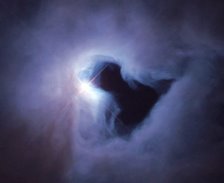

































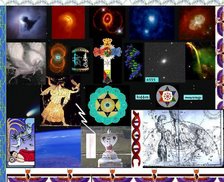
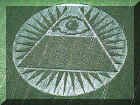




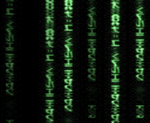



































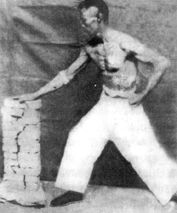





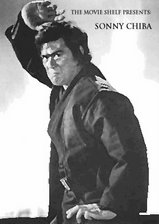








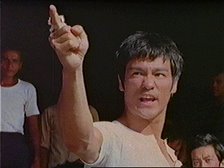







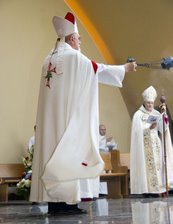
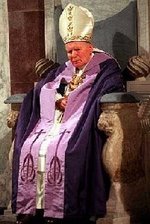








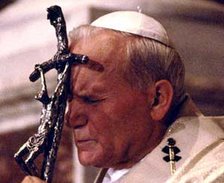





















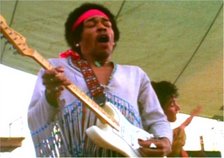
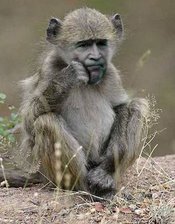












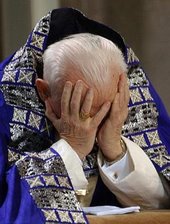







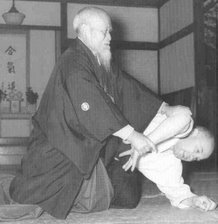

















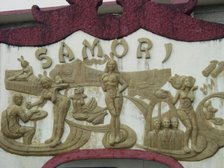

















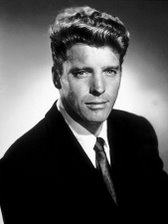




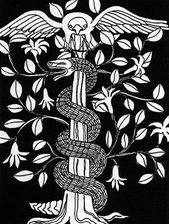








2 comments:
t's such a important site. imaginary, acutely fascinating!!!
-------
[url=http://oponymozgowe.pl]Opony Mozgowe[/url]
[url=http://pozycjonowanie.lagata.pl]Pozycjonowanie[/url]
[url=http://katalog.seo-katalogi.eu/zdrowie-i-uroda/opony,s,742.html]opony[/url]
Hi - I am really glad to find this. great job!
Post a Comment